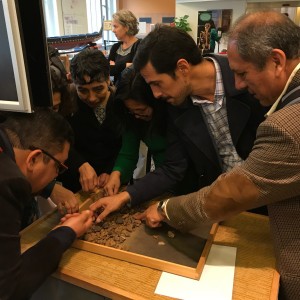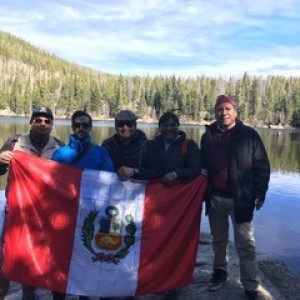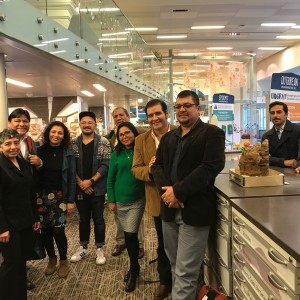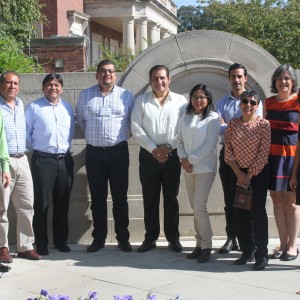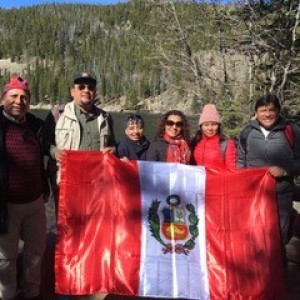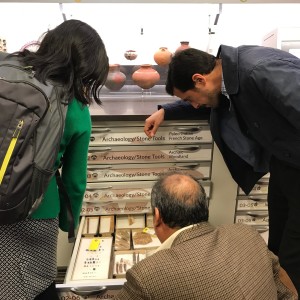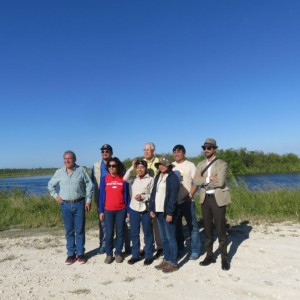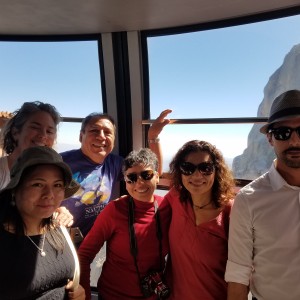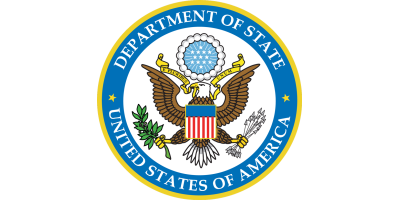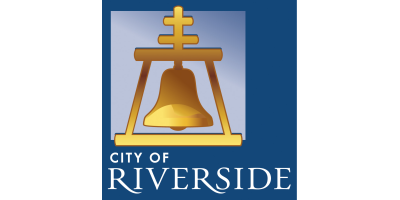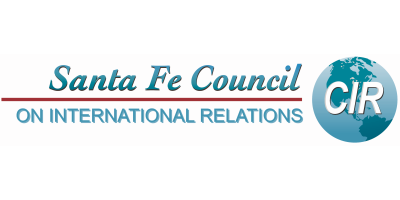Science for Parks & Parks for Science – A Project for Peru
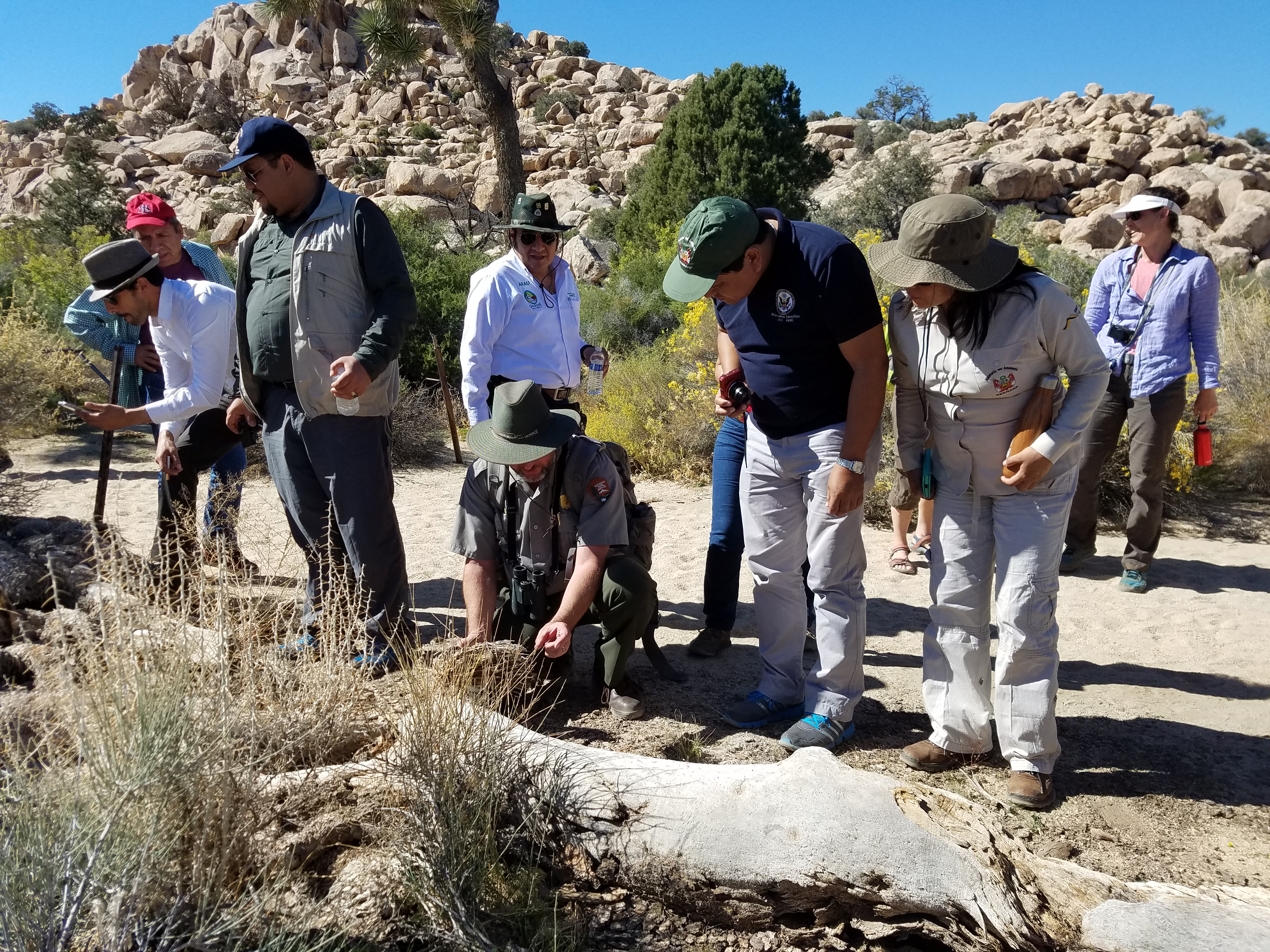
On Tuesday, October 10 Meridian International Center welcomed 8 visitors from Peru for a two week long International Visitor Leadership Program (IVLP). Made up of scientists, journalists, and environmental officials, the group participated in the program to examine how science conducted inside U.S. national parks informs the park's conservation and tourism management strategies. During this IVLP, the participants also shared best practices in the enforcement of regulations, studies approaches for coordinating management of protected areas, and explored the role of local communities in protecting national parks. The participants convened in Washington, DC before departing for Riverside, CA; Durango, CO; Denver, CO; and Miami, FL.
While in Washington, the group had the opportunity to meet with Ms. Hannah Stutzman, Executive Director of the Amazon Conservation Association. Ms. Stutzman was able to speak about its coordinated efforts with Peruvian and Bolivian colleagues to train conversationalists and work with local communities to preserve the area's biodiversity. A meeting with the National Parks Service followed afterward, where a panel was organized with officials from the Tribal Historic Preservation Program, the NPS Archaeology Program, and the NPS Tourism Program. In addition, appointments were scheduled with officials from the Department of the Interior's Bureau of Land Management, staff from the Smithsonian Conservation Biology Institute, officers from the U.S. Department of Agriculture Forest Service, and organizers at the Sierra Club. Prior to their departure to Riverside, the group had the opportunity to meet with faculty from the National Museum of Natural History and explore their Q?rius exhibit, where they were able to examine specimens and search for fossils.
Our partner, the International Relations Council of Riverside, began the group's local itinerary with a visit to the Joshua Tree National Park that included a professional meeting and tour with Wildlife Ecologist Mike Vamstad of the National Parks Service. The participants were also able to enjoy a home hosted dinner in the evening before their next day of sessions at the San Bernardino National Forest and their departure for Durango.
The Santa Fe Council on International Relations organized the program in Durango, where the participants were outdoors much of the first day traversing Mesa Verde National Park. The itinerary included presentations by park officials, a town-hall style meeting with local community members and superintendents, and guided site visits to the Chapin Mesa Museum and Cliff Palace. Subsequent appointments included a session with the District Ranger at the San Juan Ranger Station, another site visit to the Hermosa SMA/Wilderness & Falls Creek Rock Shelters, and a panel discussion with government leaders and representatives from the City of Durango. They also took part in a welcome ceremony hosted by Durango Mayor Dick White and a recreational trip to Great Sand Dunes National Park before driving on to Denver.
WorldDenver crafted an excellent city stop itinerary, where the participants had several days to visit Red Rocks Park, Rocky Mountain National Park, and the NPS Denver Services Center. The meeting with NPS was particularly useful, as a representative discussed resource management, transportation and trail management, and site design/accessibility measures. The group also enjoyed an evening of home hospitality before traveling to Miami.
The final local itinerary was programmed by Global Ties Miami, with the first day being dedicated to meetings with both the Department of Economic Resources and the South Florida and Caribbean Cooperative Ecosystem Studies Unit. Between these two sessions the visitors exchanged best practices for coordinating management of protect areas, interagency collaboration to address resource management issues, and examining the impact of parks in South Florida. The following day included both a tour of the Everglades and a discussion with the Everglades Foundation, a non-profit that is dedicated to protecting and restoring the ecosystem. After these appointments concluded, the visitors departed for home to apply what they learned in their respective institutions.
Sponsors
Project summary
| Science for Parks & Parks for Science – A Project for Peru | October 2017 | |
|---|---|
| Number of Visitors: | 8 |
| Regions: | Western Hemisphere |
| Countries: | Peru |
| Impact Areas: | Energy and the Environment, Science and Technology |
| Program Areas: | Global Leadership |
| Partners: | NGOs, Private Sector, Public Sector |
